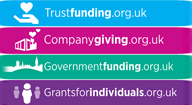Volunteer management, Management & leadership
Managing volunteers: Assessing the impact of your volunteers
Five key principles to help you do it well.
Joanna Stuart gives you five points for managing volunteers
Making a positive difference – to service users, the environment, the wider community or volunteers themselves – should be the cornerstone to any volunteering programme or project. However, it can be difficult to find the time and resources to assess the difference volunteers make. Here are some key principles to help you.
Identify clearly the ‘what’ and the ‘why’
You need to be clear from the outset about what your volunteering programme and your volunteers are trying to achieve. Without this clarity it will be difficult to assess the difference they are making. This is essentially identifying the long term effect you want your programme to have (the impact) and the changes, benefits and learning you want the programme to create (the outcomes).
When it comes to the why I would argue that internal learning should always be a key reason for doing a volunteering impact assessment, however, you may also need evidence of impact for different stakeholders. Funders and your Board may want to see different kinds of evidence and this will affect your approach.
Involve others and work together
It is useful and wise to work with others in your team and organisation on your volunteering impact assessment, especially in the planning phase. There are some great examples of volunteer managers doing this, helping to ensure the findings are taken notice of and used to make real change in their organisations. Guide Dogs for the Blind, for example, sought the help of two skilled employer-supported volunteers to collate feedback and run workshops with key stakeholders and the executive board to help identify what they wanted from their assessment and how it could inform their planning, strategy and decision making.
Be realistic and proportionate
Think about the time and other resources you have available and be realistic. Make sure your assessment is proportionate to the scale of your work. You don’t want to find yourself spending more time on your impact assessment than actually working to support your volunteers! Some organisations take a phased approach, initially focusing on one area, for example, the impact on service users and then once that’s completed moving on to the impact on volunteers. Think about what users, volunteers and other stakeholders most value about your programme and start from there.
Use and adapt existing tools
Rather than starting from scratch it makes sense to use and adapt tools that have already been developed and tried by other organisations. The Volunteering Impact Assessment Toolkit (3rd edition), developed by IVR and NCVO, includes tools such as template questionnaires and focus group topic guides which can easily be adapted to assess the impact on volunteers, organisations, service users and the wider community. More information about the toolkit is available here. There are also lots of useful resources and links to tools on the Inspiring Impact website.
Learn from your assessment
Crucial to your volunteering impact assessment is that you learn from it. As well as showing what is working well the exercise will highlight where things need to be improved. It is frustrating to see organisations not taking on board the learning and using this to make changes and improve. Make sure you share the findings widely in an engaging way, including with those who have been involved and those who help to shape planning, decisions and actions.
